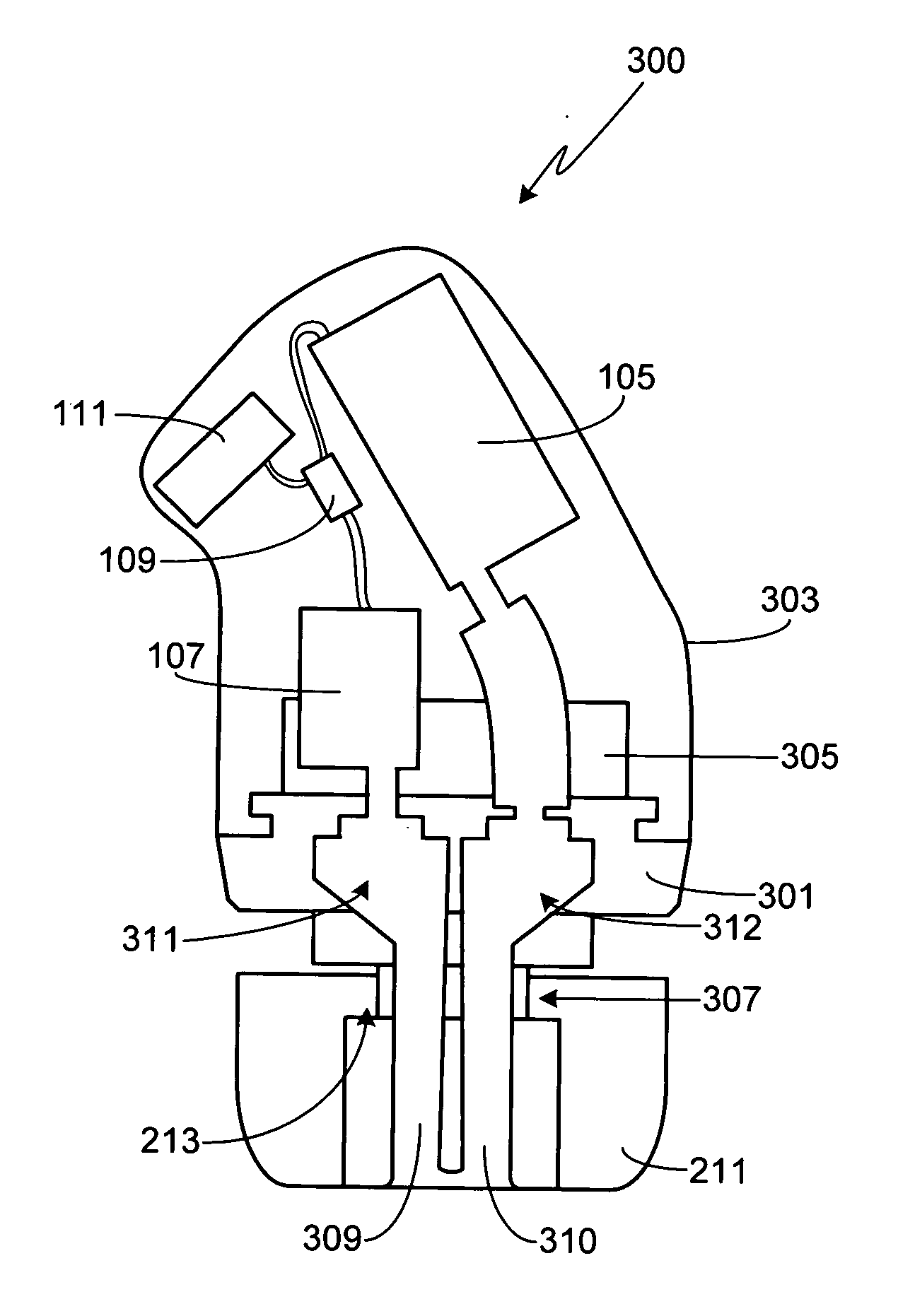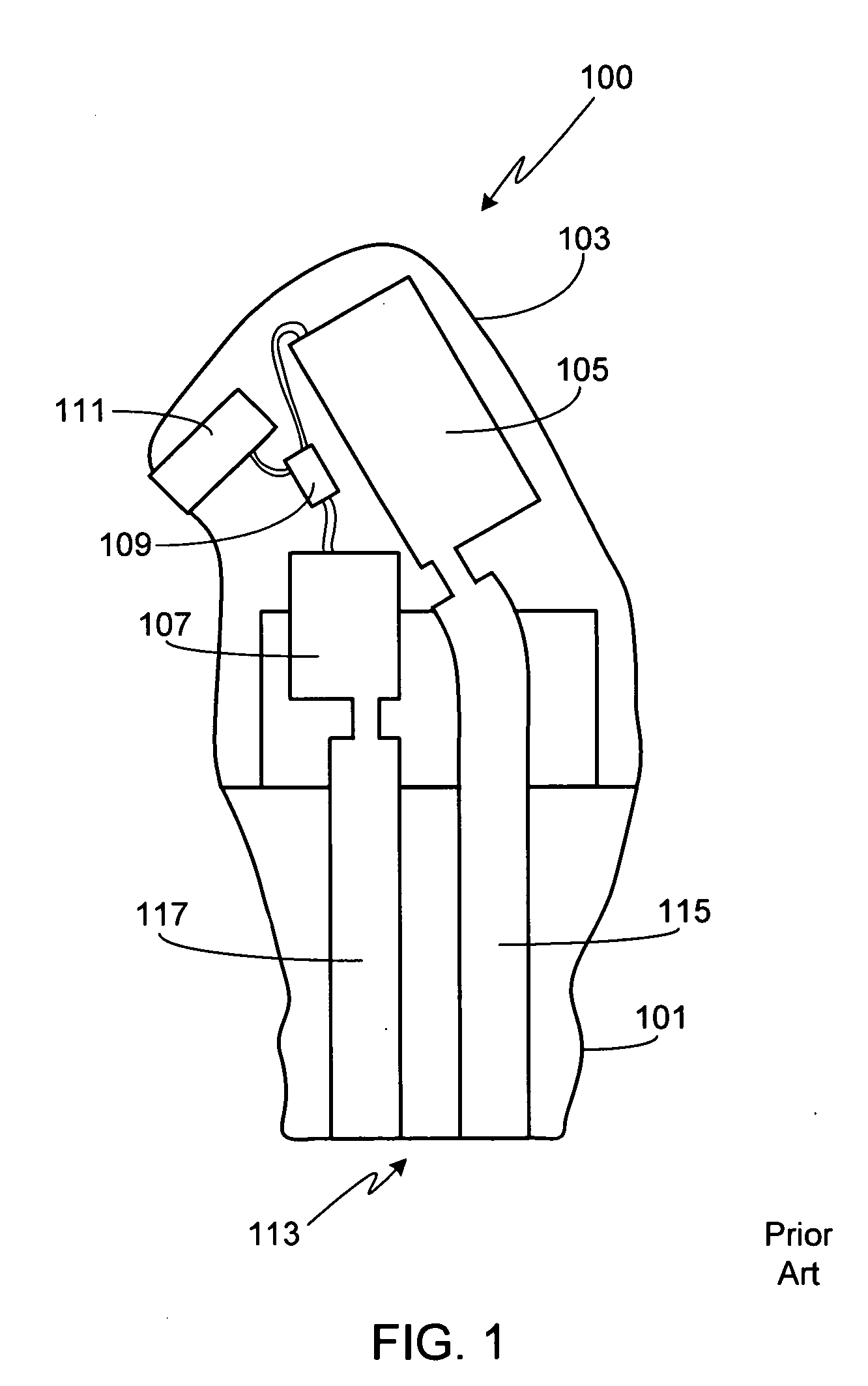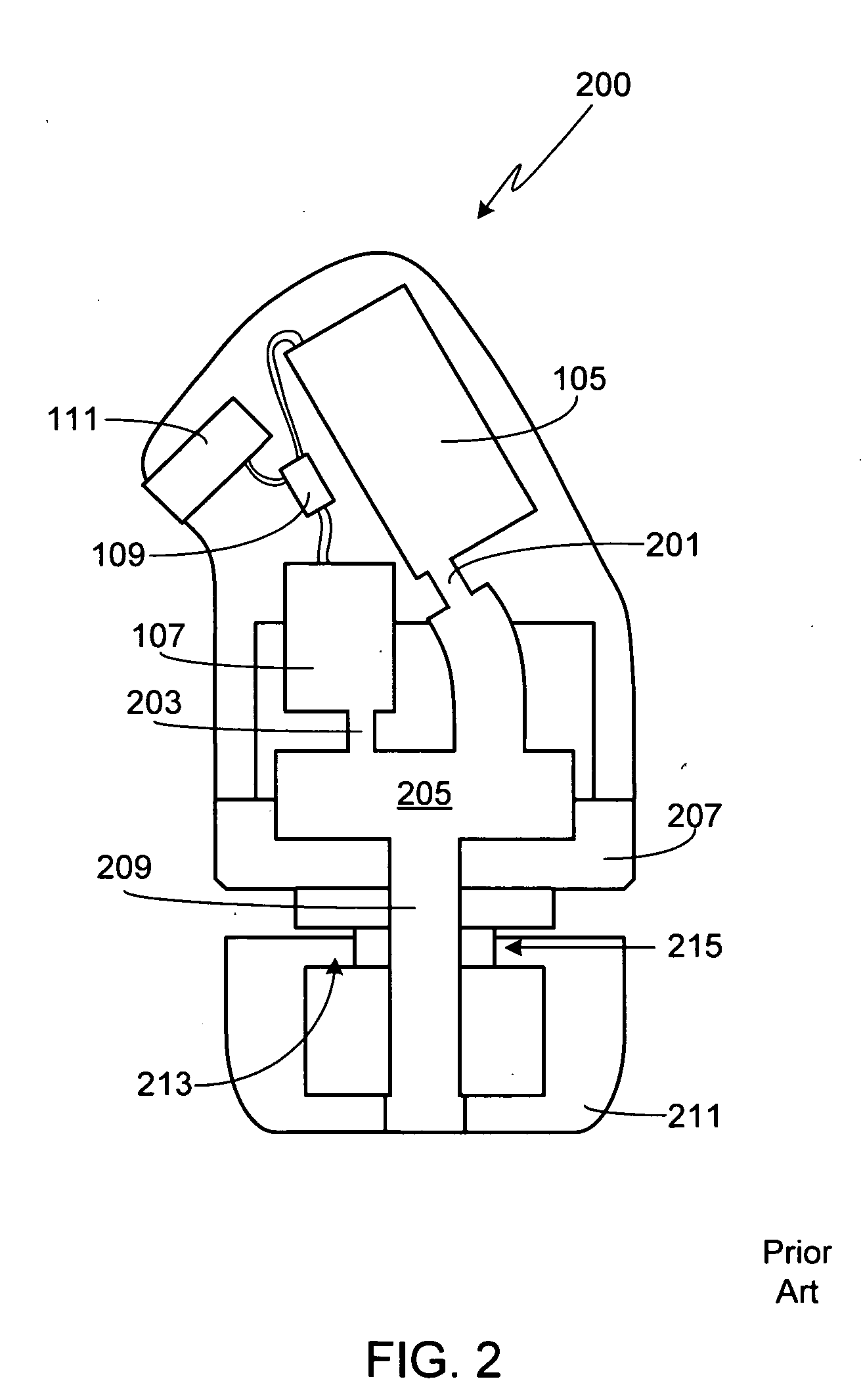In-ear monitor with shaped dual bore
a dual-bore, in-ear monitor technology, applied in the direction of transducer details, earpiece/earphone attachment, electrical transducer, etc., can solve the problems of diaphragm receivers, unable to meet the needs of users, and the use of moving-coil speakers, so as to achieve the effect of convenient tailoring
- Summary
- Abstract
- Description
- Claims
- Application Information
AI Technical Summary
Benefits of technology
Problems solved by technology
Method used
Image
Examples
Embodiment Construction
[0022]FIG. 1 is a cross-sectional view of a custom fit in-ear monitor 100 according to the prior art. The term “custom fit” refers to the well known practice in both the in-ear monitor and hearing aid industries of fitting an earpiece to a particular user's ears and, more specifically, to one of the ears of a particular user. In order to custom fit an earpiece, a casting is taken of the user's ear canal and concha. Then an earpiece of the desired type is molded from the casting.
[0023] As shown in FIG. 1, monitor 100 includes an ear canal portion 101 designed to fit within the outer ear canal of the user and an concha portion 103 designed to fit within the concha portion of the ear. In the illustrated example, monitor 100 includes a pair of armature drivers 105 and 107, driver 105 being a low-frequency driver and driver 107 being a high-frequency driver. A circuit 109, such as a passive crossover circuit or an active crossover circuit, provides input to armature drivers 105 and 107....
PUM
 Login to View More
Login to View More Abstract
Description
Claims
Application Information
 Login to View More
Login to View More - R&D
- Intellectual Property
- Life Sciences
- Materials
- Tech Scout
- Unparalleled Data Quality
- Higher Quality Content
- 60% Fewer Hallucinations
Browse by: Latest US Patents, China's latest patents, Technical Efficacy Thesaurus, Application Domain, Technology Topic, Popular Technical Reports.
© 2025 PatSnap. All rights reserved.Legal|Privacy policy|Modern Slavery Act Transparency Statement|Sitemap|About US| Contact US: help@patsnap.com



